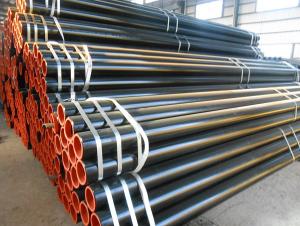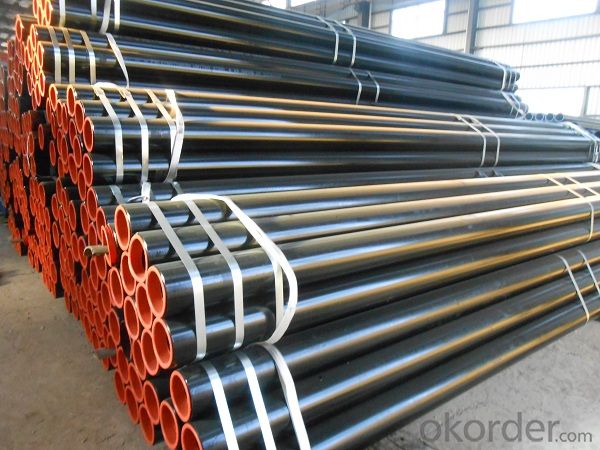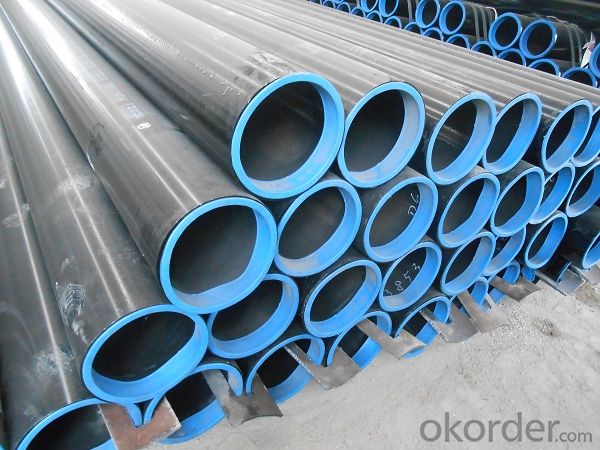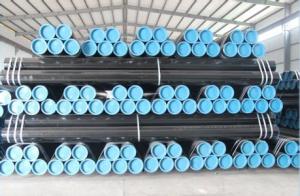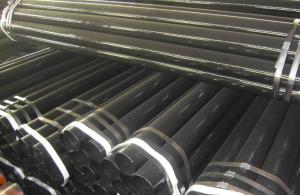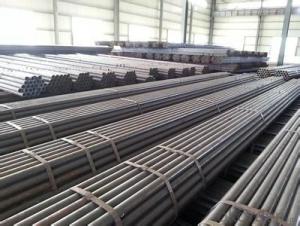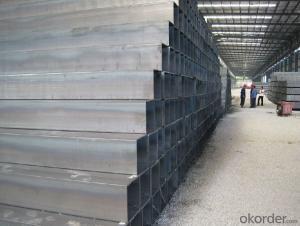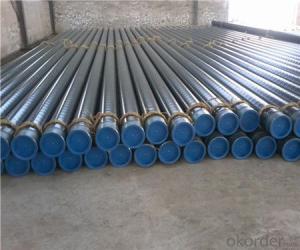Seamless steel pipe high quality API 5L
- Loading Port:
- Tianjin
- Payment Terms:
- TT OR LC
- Min Order Qty:
- 80 m.t.
- Supply Capability:
- 16000 m.t./month
OKorder Service Pledge
OKorder Financial Service
You Might Also Like
1、Structure of Seamless steel pipe high quality API 5L
Seamless pipe is formed by drawing a solid billet over a piercing rod to create the hollow shell. As the manufacturing process does not include any welding, seamless pipes are perceived to be stronger and more reliable.
2、Main Features ofSeamless steel pipe a variety of high quality
• High manufacturing accuracy
• Small inertia resistance
• Strong heat dissipation ability
• Good visual effect
• Reasonable price
3、Seamless steel pipe a variety of high qualitySpecification:
Standard | GB, DIN, ASTM ASTM A106-2006, ASTM A53-2007 |
Grade | 10#-45#, 16Mn 10#, 20#, 45#, 16Mn |
Thickness | 8 - 33 mm |
Section Shape | Round |
Outer Diameter | 133 - 219 mm |
Place of Origin | Shandong, China (Mainland) |
Secondary Or Not | Non-secondary |
Application | Hydraulic Pipe |
Technique | Cold Drawn |
Certification | API |
Surface Treatment | factory state or painted black |
Special Pipe | API Pipe |
Alloy Or Not | Non-alloy |
Length | 5-12M |
Outer Diameter | 21.3-610mm |
Grade | 20#, 45#, Q345, API J55, API K55, API L80, API N80, API P110, A53B |
Standard | ASME, ASTM |
1) Material:20#(ASTM A 106/A53 GRB.API5LGRB,GB),45#,16Mn,10#.
2) Specification range:OD:21.3-610mm,WT:6-70mm,length:6-12m or according to the requirement of clients.
3) Excutive standards:GB,ASME API5L.ASTM A 106/A53,Despite of the above standards,we can also supply seamless steel pipe with standard of DIN,JIS,and so on,and also develop new products according to the requirements of our clients!
4) Surface:black lacquered,varnish coating or galvanized.
5) Ends:Beveled or square cut,plastic capped,painted.
6) Packing:bundles wrapped with strong steel strip,seaworthy packing.
4、Packaging & Delivery
Packaging Details: | seaworthy package,bundles wrapped with strong steel strip |
Delivery Detail: | 15-30days after received 30%TT |
5、FAQ of Seamless steel pipe a variety of high quality
①How is the quality of your products?
Our products are manufactured strictly according to national and internaional standard, and we take a test
on every pipe before delivered out. If you want see our quality certifications and all kinds of testing report, please just ask us for it.
Guaranteed: If products’ quality don’t accord to discription as we give or the promise before you place order, we promise 100% refund. Historically seamless pipe was regarded as withstanding pressure better than other types, and was often more easily available than welded pipe.
②How about price?
Yes, we are factory and be able to give you lowest price below market one, and we have a policy that “ for saving time and absolutely honest business attitude, we quote as lowest as possible for any customer, and discount can be given according to quantity”,if you like bargain and factory price is not low enough as you think, just don’t waste your time.Please trust the quotation we would give you, it is professional one.
6、Seamless steel pipe a variety of high quality Images:
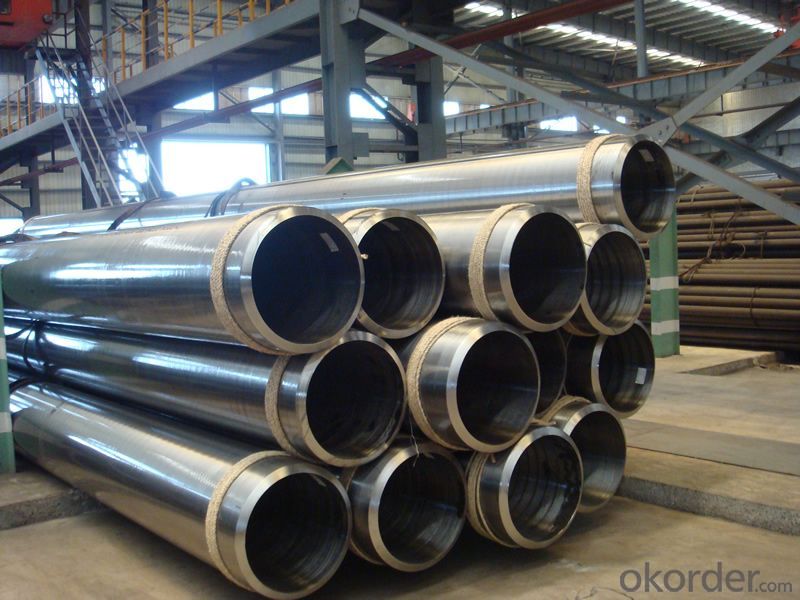
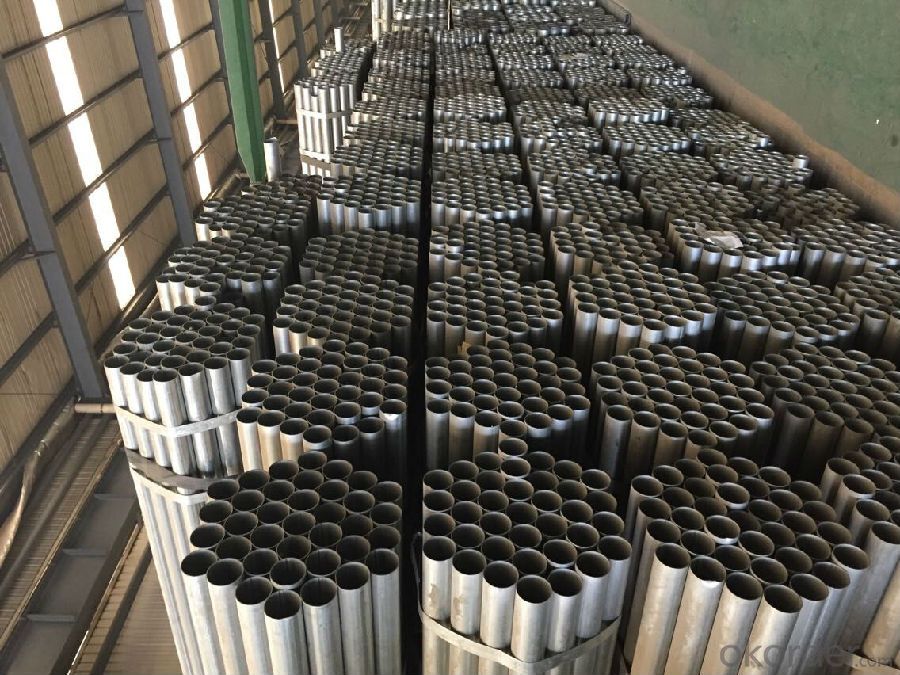
- Q: Can steel pipes be used for sewer systems?
- Yes, steel pipes can be used for sewer systems. Steel pipes are commonly used for sewer systems due to their durability, strength, and resistance to corrosion. They are able to withstand heavy loads and can be used for both gravity and pressure sewer systems. Additionally, steel pipes provide a long service life, making them a suitable choice for sewer infrastructure.
- Q: What is the difference between steel pipes and PVC-U pipes?
- Steel pipes and PVC-U pipes differ in their composition, durability, and application. Steel pipes are made from iron and carbon, providing them with high strength and resistance to extreme conditions. They are commonly used for transporting water, gas, and oil in industrial settings due to their durability and ability to withstand high pressure and temperature. PVC-U pipes, on the other hand, are made from a synthetic plastic called polyvinyl chloride. They are lightweight, corrosion-resistant, and easy to install, making them ideal for residential plumbing, irrigation systems, and drainage. While steel pipes are more robust and suitable for heavy-duty applications, PVC-U pipes are cost-effective, versatile, and suitable for lighter applications.
- Q: How do you solder purple copper plate and steel tube?
- When the copper and copper tube size is too large, argon welder welding, DC argon arc welding machine, of course, when DC argon arc welding welding belongs to welding, argon arc welding of brass with Wei Odin 204S welding, the argon arc welding wire for gas welding is not brass wire, this concept must be clear, the wire diameter of 2 80-120A, welding current parameters, if the copper thickness is relatively thick, with a red copper welding after welding preheating in advance.
- Q: What are the common methods for repairing steel pipes?
- Depending on the nature and extent of the damage, there are several common methods available for repairing steel pipes. One method frequently used is welding. This technique involves melting the damaged area and fusing it with a new piece of steel. Welding is typically employed for small cracks or holes in the pipe. Different welding techniques, such as shielded metal arc welding (SMAW), gas metal arc welding (GMAW), or tungsten inert gas (TIG) welding, can be utilized. Another option is pipe wrapping or bandaging. This method entails wrapping a layer of adhesive tape or resin-soaked fiberglass around the damaged section of the pipe. It is suitable for addressing small leaks or corrosion spots and serves as a temporary solution until a more permanent fix can be implemented. If the damage is extensive or the pipe suffers severe corrosion, pipe lining or relining may be necessary. This involves inserting a new pipe liner inside the existing one, effectively creating a new pipe within the old one. Various materials, such as epoxy, polyethylene, or cured-in-place pipe (CIPP), can be used for this method. Pipe lining is commonly employed for larger diameter pipes or when replacement is not feasible. In some instances, minor leaks or cracks can be repaired using pipe clamps or sleeves. These devices are designed to be clamped around the damaged section and can provide either a temporary or permanent solution, depending on the severity of the damage. Ultimately, the choice of repair method depends on factors such as the extent of the damage, accessibility of the damaged area, budget constraints, and the required long-term durability. It is advisable to consult with a professional pipe repair specialist to assess the specific situation and determine the most suitable method for repairing steel pipes.
- Q: What are the industries that commonly use steel pipes?
- Some of the industries that commonly use steel pipes include construction, oil and gas, manufacturing, transportation, and infrastructure.
- Q: How are steel pipes used in the construction of oil storage tanks?
- Steel pipes are used in the construction of oil storage tanks as they provide strength and durability to withstand the weight and pressure of the stored oil. These pipes are utilized for the tank's structural framework, ensuring stability and preventing leakage. Additionally, steel pipes are commonly used for the tank's piping system, allowing for the transportation of oil in and out of the storage facility.
- Q: Seamless steel tube with the tube with what is the difference?
- At present there are some seamed steel pipe seamless treatment tube, it is the weld annealing treatment, eliminate the residual stress of the weld, the weld and base material, the pressure range of basic and seamless pipe is. May also consider the use of.
- Q: What is the load-bearing capacity of steel pipes?
- The load-bearing capacity of steel pipes depends on various factors such as the diameter, wall thickness, and grade of the steel used. Generally, steel pipes have high load-bearing capacity due to their inherent strength and durability. The load-bearing capacity can be determined through engineering calculations and testing methods. These calculations consider factors like the applied load, pipe dimensions, and the material properties of the steel. It is important to consult engineering standards and guidelines, as well as a structural engineer, to accurately determine the load-bearing capacity of specific steel pipes for a given application.
- Q: How to distinguish seamless pipe and welded pipe?
- If there is a weld seam in the fracture surface, whether it is inside or outside the pipe, then it is the welded pipe
- Q: What is the impact resistance of steel pipes?
- Steel pipes have high impact resistance, meaning they can withstand significant external forces without fracturing or breaking. This makes them highly durable and suitable for various applications, especially in industries where they are subjected to heavy loads or potential impacts.
Send your message to us
Seamless steel pipe high quality API 5L
- Loading Port:
- Tianjin
- Payment Terms:
- TT OR LC
- Min Order Qty:
- 80 m.t.
- Supply Capability:
- 16000 m.t./month
OKorder Service Pledge
OKorder Financial Service
Similar products
Hot products
Hot Searches
Related keywords
